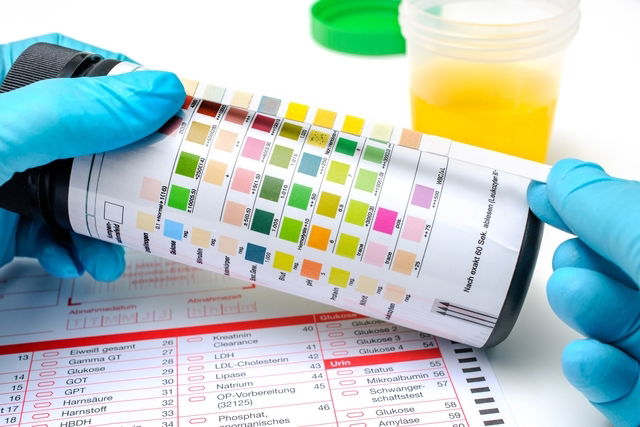Nitrites in the urine are a sign that bacteria that can convert nitrates to nitrites are present in the urine. These bacteria should be treated with antibiotics like ciprofloxacin, particularly if they are causing symptoms.
Although a urine microscopy test can identify the presence of bacteria and nitrites when the urine is visualized under a microscope, a more specific urine test, a urine culture, should be ordered to look for bacteria in the urine, even if it is negative for nitrites. The urine culture is able to confirm the type of bacteria present in the urine, which allows the doctor to prescribe an antibiotics that is most suitable to treat it.

How nitrites are tested
A urine R&M test (routine and microscopy) is able to detect the presence of nitrites. Urine collection should be done first thing in the morning with a sterile container. Before collecting, wipe the genital area and urethra, and pee first into the toilet, then into the cup.
Some bacteria have the ability to convert nitrates that are normally present in urine to nitrites. Urine dip tests are able to identify these nitrites as well as other elements in the urine. However, even if the urine is negative for nitrites, it does not mean that bacteria is not present in the urine. Some bacteria do not have the ability to convert nitrates, and are only identified through an R&M or a urine culture test.
To confirm a diagnosis for a urinary tract infection through an R&M test, several characteristics should be noted in the urine, such as leukocytes, red blood cells, and bacteria.
Treatment for positive nitrites
Treatment for positive nitrites in a urine test should be guided by a doctor. Typically it involves the use of antibiotics like amoxicillin or ciprofloxacin during 3, 7, 10 or 14 days. The length of treatment will depend on the medication used, the dosing and the severity of infection and the UTI symptoms the patient may have.
In the meantime, when there are changes noted to a urine test without any symptoms, treatment may not be necessary. The body may be able to fight the microorganism on its own to prevent an infection. In these cases, the doctor may order a follow-up test to check for infection later on.
For positive nitrites during pregnancy, women should consult their obstetrician to start treatment with pregnancy-safe antibiotics, like cephalexin or ampicillin, as pregnancy increases the risk of a UTI reaching the kidneys.
